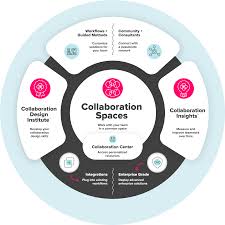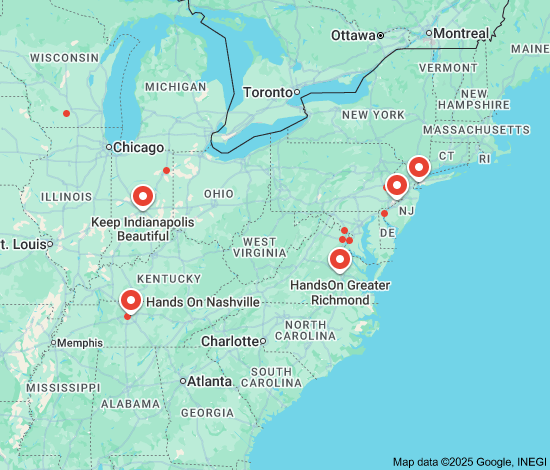The Gay and Lesbian Rights Movement
The gay and lesbian rights movement, also known as the LGBTQ rights movement, has been a powerful force advocating for equality, acceptance, and legal protections for individuals who identify as gay, lesbian, bisexual, transgender, and queer. This movement has a rich history of activism and advocacy that has brought about significant social change.
One of the key milestones in the gay and lesbian rights movement was the Stonewall Riots in 1969, which sparked a wave of activism and protests against discrimination and violence targeting LGBTQ individuals. This event is often considered the catalyst for the modern LGBTQ rights movement.
Over the years, the movement has achieved important victories, such as the legalization of same-sex marriage in many countries around the world, anti-discrimination laws protecting LGBTQ individuals in employment and housing, and increased visibility and representation of LGBTQ people in media and society.
Despite these advancements, challenges remain. LGBTQ individuals still face discrimination, violence, and stigma in many parts of the world. The fight for equal rights continues to be a central focus of the gay and lesbian rights movement.
Organizations such as GLAAD (Gay & Lesbian Alliance Against Defamation), Human Rights Campaign, and The Trevor Project play crucial roles in advancing LGBTQ rights through advocacy, education, and support services.
As society continues to evolve and progress towards greater acceptance and inclusion of LGBTQ individuals, the gay and lesbian rights movement remains steadfast in its commitment to fighting for equality for all.
8 Benefits of the Gay and Lesbian Rights Movement: Promoting Equality, Acceptance, and Social Change
- Promotes equality and non-discrimination for LGBTQ individuals
- Advocates for legal protections against discrimination based on sexual orientation
- Raises awareness about LGBTQ issues and challenges faced by the community
- Works towards creating a more inclusive and accepting society
- Celebrates diversity and promotes acceptance of different sexual orientations
- Empowers LGBTQ individuals to live authentically and without fear of stigma
- Fosters a sense of community and solidarity among LGBTQ individuals and allies
- Contributes to positive social change by challenging stereotypes and prejudices
Challenges Facing the Gay and Lesbian Rights Movement: Key Points of Contention
- Resistance and opposition from conservative and religious groups who view LGBTQ rights as conflicting with their beliefs.
- Lack of comprehensive legal protections in some regions, leading to discrimination and harassment of LGBTQ individuals.
- Ongoing societal stigma and prejudice towards LGBTQ individuals, resulting in social exclusion and marginalization.
- Challenges in achieving full acceptance within certain communities or cultures that hold traditional views on sexuality and gender identity.
- Divisive debates within the LGBTQ community itself about priorities, strategies, and representation in the movement.
Promotes equality and non-discrimination for LGBTQ individuals
The gay and lesbian rights movement plays a crucial role in promoting equality and non-discrimination for LGBTQ individuals. By advocating for legal protections, challenging societal norms, and raising awareness about the struggles faced by the LGBTQ community, this movement strives to create a more inclusive and accepting society where individuals can live authentically without fear of discrimination or prejudice based on their sexual orientation or gender identity. Through its efforts, the gay and lesbian rights movement seeks to ensure that all individuals have equal opportunities and are treated with dignity and respect, regardless of who they love or how they identify.
Advocates for legal protections against discrimination based on sexual orientation
The gay and lesbian rights movement advocates for legal protections against discrimination based on sexual orientation, ensuring that individuals are not unfairly treated or marginalized because of who they love or how they identify. By fighting for inclusive anti-discrimination laws, the movement seeks to create a more just and equitable society where LGBTQ individuals can live openly and authentically without fear of prejudice or bias. These legal protections help safeguard the rights and dignity of all individuals, promoting equality and acceptance for everyone regardless of sexual orientation.
Raises awareness about LGBTQ issues and challenges faced by the community
The gay and lesbian rights movement plays a crucial role in raising awareness about LGBTQ issues and shedding light on the challenges faced by the community. By advocating for equality and acceptance, this movement brings attention to the discrimination, stigma, and injustices experienced by LGBTQ individuals. Through education, activism, and advocacy efforts, the movement fosters understanding and empathy, ultimately working towards a more inclusive society where everyone can live authentically and without fear of discrimination based on their sexual orientation or gender identity.
Works towards creating a more inclusive and accepting society
The gay and lesbian rights movement plays a crucial role in working towards creating a more inclusive and accepting society for all individuals, regardless of sexual orientation or gender identity. By advocating for equal rights, challenging discrimination, and promoting understanding and empathy, this movement helps foster a culture where diversity is celebrated and everyone can feel safe and respected. Through its efforts, the gay and lesbian rights movement contributes to building a society where people can live authentically without fear of judgment or exclusion, ultimately paving the way for a more harmonious and equitable future for all.
Celebrates diversity and promotes acceptance of different sexual orientations
The gay and lesbian rights movement celebrates diversity and promotes acceptance of different sexual orientations by advocating for a society where individuals can freely express their identities without fear of discrimination or prejudice. Embracing the unique experiences and perspectives of LGBTQ individuals, this movement fosters a culture of inclusivity and understanding, challenging societal norms and stereotypes to create a more tolerant and accepting world for all.
Empowers LGBTQ individuals to live authentically and without fear of stigma
The gay and lesbian rights movement empowers LGBTQ individuals to live authentically and without fear of stigma by creating a supportive environment where they can express their true selves without judgment or discrimination. This proponent of the movement encourages individuals to embrace their identities with pride and confidence, fostering a sense of belonging and acceptance within society. By advocating for equal rights and challenging societal norms, the movement helps LGBTQ individuals navigate through life with dignity and respect, allowing them to thrive in their personal and professional endeavors free from the constraints of prejudice and bias.
Fosters a sense of community and solidarity among LGBTQ individuals and allies
The gay and lesbian rights movement fosters a strong sense of community and solidarity among LGBTQ individuals and their allies. By coming together to advocate for equal rights and acceptance, members of the LGBTQ community build connections, support each other, and create a network of allies who stand united in the fight for equality. This sense of community provides a safe space for individuals to express themselves authentically, share their experiences, and find strength in knowing that they are not alone in their struggles. Through collective action and mutual support, the gay and lesbian rights movement strengthens bonds within the LGBTQ community and builds bridges with allies who share the common goal of creating a more inclusive society for all.
Contributes to positive social change by challenging stereotypes and prejudices
The gay and lesbian rights movement contributes to positive social change by challenging stereotypes and prejudices that have long marginalized LGBTQ individuals. By advocating for equal rights and visibility, the movement helps break down barriers and misconceptions, fostering a more inclusive society where diversity is celebrated rather than stigmatized. Through education, awareness campaigns, and activism, the movement promotes understanding and empathy, ultimately leading to a more tolerant and accepting world for all individuals regardless of their sexual orientation or gender identity.
Resistance and opposition from conservative and religious groups who view LGBTQ rights as conflicting with their beliefs.
Resistance and opposition from conservative and religious groups who view LGBTQ rights as conflicting with their beliefs has been a significant con of the gay and lesbian rights movement. These groups often cite religious doctrines or traditional values to justify their discriminatory attitudes towards LGBTQ individuals, leading to legal battles, social tensions, and barriers to achieving full equality. The clash between the principles of LGBTQ rights and the deeply entrenched beliefs of conservative and religious factions continues to pose a challenge for progress in the fight for equal rights and acceptance for the LGBTQ community.
Lack of comprehensive legal protections in some regions, leading to discrimination and harassment of LGBTQ individuals.
In certain regions, a significant con of the gay and lesbian rights movement is the lack of comprehensive legal protections for LGBTQ individuals, which results in widespread discrimination and harassment. Without robust laws safeguarding their rights, LGBTQ people are vulnerable to mistreatment in various aspects of their lives, including employment, housing, healthcare, and public accommodations. This lack of legal protection not only perpetuates inequality but also fosters a climate where LGBTQ individuals may face hostility and prejudice with little recourse for justice. Addressing this issue is crucial in ensuring that all members of the LGBTQ community can live openly and authentically without fear of discrimination or harm.
Ongoing societal stigma and prejudice towards LGBTQ individuals, resulting in social exclusion and marginalization.
One significant con of the gay and lesbian rights movement is the persistent societal stigma and prejudice towards LGBTQ individuals, leading to their social exclusion and marginalization. Despite progress in legal protections and increased visibility, many LGBTQ people continue to face discrimination, bias, and hostility in various aspects of their lives. This ongoing stigma not only hinders the full acceptance and integration of LGBTQ individuals into society but also perpetuates harmful stereotypes and barriers to their well-being and equal treatment. Addressing this deep-rooted prejudice remains a crucial challenge for the movement towards achieving true equality and inclusivity for all.
Challenges in achieving full acceptance within certain communities or cultures that hold traditional views on sexuality and gender identity.
One significant challenge facing the gay and lesbian rights movement is the struggle to achieve full acceptance within certain communities or cultures that adhere to traditional views on sexuality and gender identity. In these contexts, deeply entrenched beliefs and norms often perpetuate stigma, discrimination, and even violence against LGBTQ individuals. Overcoming these barriers requires not only legal protections and policy changes but also sustained efforts to engage in dialogue, education, and advocacy to promote understanding and acceptance across diverse cultural landscapes.
Divisive debates within the LGBTQ community itself about priorities, strategies, and representation in the movement.
One significant con of the gay and lesbian rights movement is the presence of divisive debates within the LGBTQ community itself regarding priorities, strategies, and representation in the movement. These internal disagreements can hinder progress and unity within the community, leading to challenges in effectively advocating for equal rights and protections. Differences in opinions on which issues to prioritize, how to approach advocacy efforts, and who should represent the community can create tension and detract from the overarching goal of achieving equality and acceptance for all LGBTQ individuals. It is essential for the community to navigate these internal debates constructively to ensure a cohesive and impactful movement towards achieving LGBTQ rights.




Leave a Reply